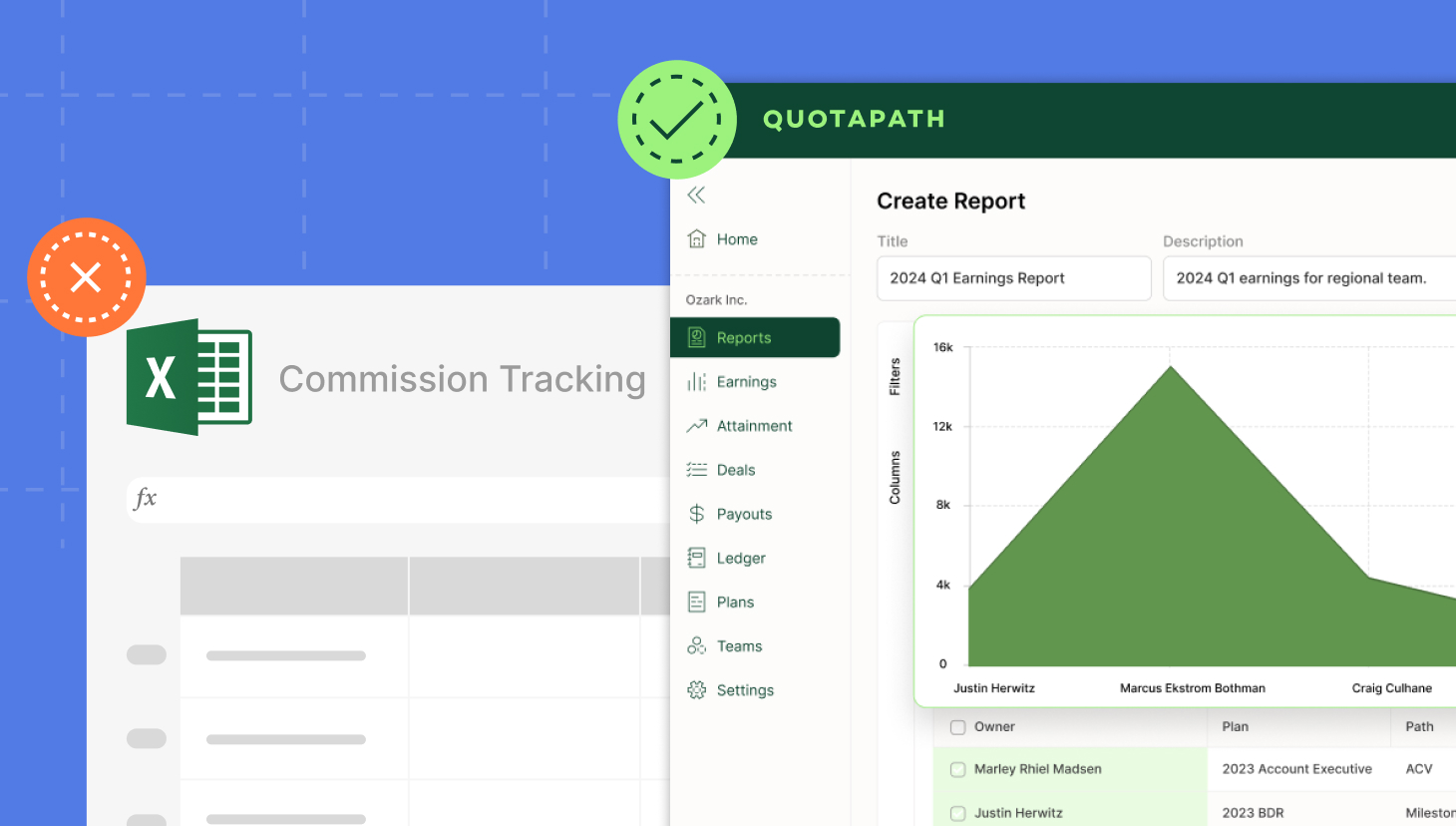You have a great sales team. You have a great and varied product offering. So, why are your sales not delivering the results you would expect? It may all be down to poor—or non-existent—sales performance management.
In this article, we’ll run you through sales performance management, its benefits, and how you can implement it for your organization. Without further ado, let’s dive right in.
Understanding Sales Performance Management
Sales Performance Management (SPM) is a comprehensive program designed to manage, optimize, and monitor sales performance within an organization. It includes strategies, tools, and processes that enable sales leaders to create, monitor, and assess the effectiveness of sales operations. Nowadays, it is essential in organizations of any size.
Sales Performance Management (SPM) examines the entire sales process from all angles, identifying ways to maximize sales efficiency and effectiveness. SPM combines various techniques and technologies to align sales processes with wider business strategies and goals and, in return, increase revenue growth.
This is a holistic management process—from sales planning to tracking performance, coaching, and incentive compensation management. The objective should be that the salesforce is motivated, informed, and able to reach their targets.

Key Components of Sales Performance Management
Let’s start by reviewing the main components of managing sales performance. Knowing these key components is important for improving your sales team’s success.
Sales Planning and Forecasting
This is all about setting realistic sales targets based on historical information, market analysis, and sales trends.
This is where Marketing Data Platforms can also help by providing valuable data insights. MDPs consolidate historical data from multiple marketing campaigns and various points of interaction with customers to identify trends and possible goals that can be reached within a business. They also provide businesses with an in-depth analysis of the market to better understand market conditions and customer preferences.
Proper sales planning goes a long way in resource allocation and budgeting plans and also establishes benchmarks for performance.
Sales Performance Tracking
Any business has to seriously consider continuous tracking of sales activities and results. Monitoring sales performance shows just how effective various selling methods are, as well as performance on an individual level by sales team members.
Organizations can assess what is driving results in their sales activities and what is not. This ongoing observation offers room for timely adjustments, ensuring that sales targets are met and resources are used efficiently.
Additionally, monitoring financial metrics such as Days Sales Outstanding (DSO) is essential as it reflects how quickly cash flow is generated from sales, impacting overall economic health.
Sales effectiveness involves evaluating different selling methodologies, such as online marketing campaigns, sales techniques, direct selling, and promotional events. A business can then compare the results to establish which methods yield positive results and allocate its resources accordingly.
Individual performance indicators, such as the number of calls made, the number of deals closed, and subsequent revenues, may provide insights into each sales team member’s performance. This will not only easily allow identification of top performers but also signal where to provide others in the team with support or training.
For example, as part of Sales Performance Management, you would measure metrics like sales cycle length, and use the data from sales prospecting tools to determine how well your sales reps are turning prospects into qualified leads and, ultimately, customers.

Sales Coaching and Training
Training and development programs should be continually enhanced to keep the sales force able, trained, and knowledgeable. Sales coaching can identify areas that require improvement and help sales reps achieve their full potential.
Sales methods and customer preferences change over time; hence, the updates ensure that the sales reps utilize the current techniques. These programs enhance the team’s ability, teach new skills through workshops and courses, and increase product knowledge.
Sales coaching is essential in this process. Coaches assess performance, give personalized feedback, and identify areas for improvement. They help sales reps develop skills, set goals, and provide motivation and support to achieve their best.
The benefits include better sales performance, higher job satisfaction, and change adaptability. In other words, continual training and coaching improvement make sales teams effective and efficient.
Design, track, and manage variable incentives with QuotaPath. Give your RevOps, finance, and sales teams transparency into sales compensation.
Talk to SalesIncentive Compensation Management
The design and management of incentives are considered core areas within Sales Performance Management. They revolve around creating and delivering incentives to motivate sales teams to be better, more motivated, and tuned into organizational goals.
The incentives provided drive sales teams, making them feel appreciated and motivated. The incentives help ensure that the sales team’s actions align with the business’s goals. That way, everyone does their work with a common interest in mind.
A well-designed incentive program should encompass financial incentives like commissions and bonuses, and non-financial rewards like recognition and career development opportunities.
Properly designed incentive programs lead to better sales performance, greater productivity, higher rates of employee satisfaction and retention, and a competitive edge in attracting top sales talent.
For example, in a company that sells communication systems, incentive compensation management might look like tiered commission rates based on higher sales volumes and fixed quarterly and annual bonuses upon exceeding set targets.
There might also be special incentives for selling high-margin products like a new IP phone system for small business, as well as team-based performance bonuses to encourage collaboration.

Data Analytics and Reporting
Leverage modern data tools to understand your sales performance better. You can scrutinize all the sales data, customer behavior, and dynamics within the market for any possible trends or patterns. These tools automatically create highly detailed reports and easy-to-read dashboards.
You can also use B2B marketing tactics to track content engagement, email campaign performance, and social media interaction; this way, you know how all of these activities are impacting your lead generation and conversion rates.
With this information, you can make informed decisions based on accurate information about what to do next.
Territory and Quota Management
Another key feature of an effective sales performance management system is that it should also manage territories and quotas. Sales territories need to be well defined so that a company can exploit maximum coverage in every single area or particular region without overlap or regions left out.
Setting specific sales quotas for the sales reps motivates them to meet those targets and holds them accountable for their performance. It also increases market coverage, lessens internal conflict, and develops more productivity within the sales team.
Regular adjustments of quotas and territories based on performance data can help adapt to changing market conditions while ensuring that company resources are used most effectively and sales targets are met consistently.
Try the most collaborative solution to manage, track and payout variable compensation. Calculate commissions and pay your team accurately, and on time.
Start TrialWhy Is Sales Performance Management Important?
How your business brings its products or services to market is as important as the products themselves. Even high-quality products rarely sell themselves. By contrast, a great sales force supported by excellent sales techniques can sell just about anything. Appreciating this reality, top sales executives put as much emphasis on innovating their sales approach as on the products they offer.
Sales Performance Management helps you develop and implement sales strategies affecting each stage of the selling cycle, which will influence each step of the sale. Successful management of this broad scope of sales performance will allow you to introduce new strategies and techniques to drive your sales team toward success.
Here are some reasons why your organization needs an SPM system.
Improved Sales Effectiveness
An effective Sales Performance Management system should make the sales process more efficient. With clearer goal setting, progress tracking, and ongoing feedback, sales teams can focus on activities that provide high business value and generate revenue. This, in turn, makes sales more effective and increases the number of sales closures.
Better Sales Forecasting
Accurate sales forecasting is the key to strategic planning and resource allocation. Advanced analytical capabilities and historical data used in Sales Performance Management tools help in predicting future sales trends. This enables organizations to make educated decisions and minimize risks.

More Transparency and Accountability
Sales Performance Management systems provide greater transparency into sales activities and performance metrics. This breeds accountability on the part of sales reps themselves, as they are aware of how their performance is measured. It’s also easier to tell which representatives are at the top of their game and in which area improvements need to be made.
Improved Fit With Business Objectives
Sales Performance Management aligns strategies in sales with overall business targets. By setting clear targets and KPIs, organizations may help ensure that the selling team’s efforts are set against and running parallel to the company’s growth objectives. This alignment is critical in driving sustainable business success.
Motivated and Engaged Sales Teams
Incentive compensation forms an integral part of Sales Performance Management and has a direct bearing on the motivation of a sales team. Well-designed incentive programs drive high flyers and create healthy competition, leading to a well-motivated and responsive workforce. And, in turn, this translates into higher levels of engagement and productivity.
Data-Driven Decision Making
Being data-driven is a significant advantage for any organization. A key part of this is having access to accurate and timely information. Sales Performance Management systems provide detailed analytics and reporting systems, allowing sales leaders to make well-informed decisions. This leads to better strategies and more effective resource utilization.
Continuous Improvement
Sales Performance Management is not a one-time event but a continuous exercise of evaluation and improvement. Regular performance appraisals, feedback sessions, and training programs help in identifying gaps and implementing corrective measures. This keeps a culture of continued improvement within the organization so that the sales team is always agile and adaptive to changes in market conditions.

Implementing Sales Performance Management
Implementation of the Sales Performance Management system calls for proper planning and execution. Keep reading to find out more about this.
Define Clear Objectives
It is good to start by laying down what you want from your Sales Performance Management system. What are you looking to accomplish? Is it increased sales effectiveness, better financial forecasting, or perhaps greater sales team motivation? Clear objectives will drive the entire implementation process.
Design, track, and manage variable incentives with QuotaPath. Give your RevOps, finance, and sales teams transparency into sales compensation.
Talk to SalesChoose the Right Tools
Choose the Sales Performance Management tools that fit your business needs and objectives best. There are quite a good number of software solutions in the market that have varied features and capabilities. Look at the functionality of these tools, ease of use, and integration capabilities.
You can also consider incorporating additional tools like account based marketing platforms that can further enhance your sales strategies. With these, you can target high-value accounts, run personalized campaigns, and get detailed data insights.
Engage Stakeholders
Engage main stakeholders, for example, the sales leaders, representatives, and IT personnel within the organization, to ensure you have their buy-in and input into the Sales Performance Management system. Conduct workshops and training sessions to help everybody within an organization understand the benefits and functionalities of the new system.
Set Up Key Performance Indicators (KPIs)
Now, decide on your KPIs to quantify sales performance. They should be well-connected to your business goals and reflect how well the sales team performs. Common KPIs include revenue, conversion rates, cost of customer acquisition, and average deal size.
Develop Training Programs
Train your sales teams on how to use the Sales Performance Management tools and understand the performance metrics. Continuous training and development programs will keep the sales team updated with current strategies and techniques.
Monitor and Adjust
With the sales performance management system in action, operational effectiveness can be monitored regularly. Gather feedback from sales reps and sales leadership on problem areas or potential areas of improvement. Be prepared for adjustments in the system to keep it tightly lined up with your objectives.

Key Features of Sales Performance Management Software
Sales Performance Management (SPM) software is central to empowering teams and aligning sales efforts with strategic business objectives. Here are key features to look for:
Sales Forecasting and Planning Tools: These tools allow sales leaders to set realistic targets by analyzing historical data and current market trends. Forecasting modules use AI to project future sales performance, helping businesses optimize resources.
Performance Tracking and Analytics: Tracking tools monitor sales activities, giving a clear view of team productivity, individual performance, and customer engagement. Advanced analytics help identify high-performing reps, lagging areas, and successful sales strategies.
Incentive Compensation Management: Effective SPM software includes features for designing, tracking, and distributing commissions and bonuses. This motivates reps by ensuring they understand their earning potential and how it ties to their achievements.
Sales Coaching and Development: Many SPM solutions offer coaching tools to set goals, provide feedback, and assess skill gaps. Regular coaching improves rep performance, enhances skill sets, and aligns reps with evolving sales methodologies.
Automated Reporting and Dashboards: Real-time reporting allows leaders to view metrics like conversion rates, quota attainment, and revenue trends, making data-driven decisions easier and more accurate. Intuitive dashboards make data accessible and actionable for sales reps and managers.
Territory and Quota Management: This feature allows leaders to assign territories, set quotas, and adjust targets as needed. It ensures balanced workload distribution and optimizes coverage, minimizing overlap and missed opportunities.
CRM Integration: SPM software integrates seamlessly with CRM systems (like Salesforce and HubSpot), centralizing data from lead generation to deal closure and making sales data accessible across the organization for enhanced performance insights.
How to Improve Sales Performance
Improving sales performance requires a strategic mix of technology, motivation, and training:
- Set Clear Goals and KPIs: Define measurable KPIs like conversion rates, average deal size, and quota attainment. Goals aligned with company objectives give teams a unified direction and help measure progress effectively.
- Invest in Training and Development: Regular training keeps reps updated on sales techniques, product knowledge, and customer preferences. Sales coaching sessions help reps refine skills and develop strategies for prospecting and closing.
- Enhance CRM and SPM Integration: An integrated CRM and SPM system provides visibility into the entire sales pipeline, allowing managers to track real-time performance data and making it easy to adjust strategies as needed.
- Implement Data-Driven Incentives: Design compensation plans that reward desired sales behaviors, such as cross-selling or upselling high-margin products. Data-driven incentives keep teams motivated and aligned with business goals.
- Leverage Analytics for Continuous Improvement: Use performance data to refine processes. Sales leaders can evaluate winning strategies and make improvements to weak areas, ensuring continual growth and adaptability to market changes.
- Promote a Culture of Accountability and Collaboration: Encourage reps to track their own performance and set personal goals. Sales performance transparency fosters a culture of accountability and teamwork, which drives higher overall productivity.
B2C vs B2B Sales Performance Management
Sales performance management differs significantly between B2C (Business-to-Consumer) and B2B (Business-to-Business) environments due to customer expectations, sales cycles, and deal complexity:
| Aspect | B2C Sales Performance Management | B2B Sales Performance Management |
|---|
| Sales Cycle and Buyer Journey | Shorter, transactional sales cycle. SPM tools focus on rapid conversion tracking, customer satisfaction, and maximizing purchase frequency. | Longer sales cycle with multiple decision-makers. SPM systems emphasize relationship management, lead nurturing, and tracking long-term deal progression for consistent engagement. |
| Performance Metrics and Incentives | Key metrics include sales volume, customer acquisition cost, and churn rate. Incentives often target upsells, product bundling, and new customer acquisition. | Prioritizes metrics such as account growth, deal size, and retention rates. Incentives are aligned with revenue quotas, account expansion, and closing complex deals. |
| Customer Relationship Management | Focuses on shorter, product-centered customer interactions. Requires CRM integration to offer quick insights and personalized interactions that boost conversion rates. | Emphasizes long-term client relationships, requiring CRM integration to track ongoing interactions, build trust, and identify future opportunities for business. |
| Team Structure and Collaboration | Sales teams operate independently with a focus on individual performance. Collaboration is generally less intensive. | Requires collaboration across sales, marketing, and customer success teams. SPM tools support team-based quotas, shared incentives, and cross-functional reporting to drive cohesive success. |
The Strategic Advantage of Sales Performance Management
There isn’t any modern sales organization that wouldn’t benefit from a Sales Performance Management tool. It offers a systematic method for managing and continually enhancing sales performance, ensuring that sales teams stay motivated, aligned with business objectives, well-prepared, and informed.
Investing in a comprehensive Sales Performance Management system is not just a strategic move; it’s a must for any organization looking to thrive amidst today’s changing business landscape. Whether you’re an SMB or a large enterprise, SPM can help you release the real potential of your sales team and achieve your revenue.
Author Bio:
David Becker – Growth Marketing ManagerDavid Becker is a Growth Marketing Manager at Leadfeeder, a powerful website visitor analytics software. He helps drive Leadfeeder’s growth strategies and demand generation with a keen focus on mental health and well-being in the workplace. David excels in creating impactful marketing campaigns, analyzing trends, and boosting customer engagement for the team.



